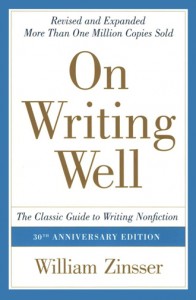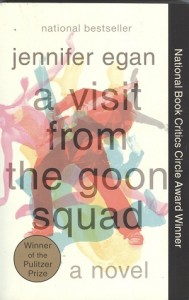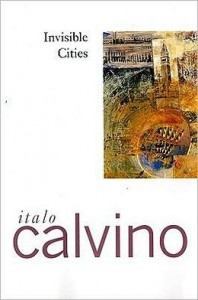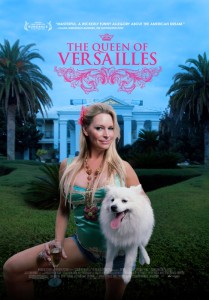Also awesome video tracking and interaction.
Author: jkordy
Miguel Gutierrez – MCA
I was so excited to finally be able to see Miguel Gutierrez and the Powerful People in Chicago. I was a huge fan back in nyc, but was itching to be able to see him since my move here. It’s been a while since I’ve even posted in the performance category, I was sure I would finally have tons to say regarding And lose the name of action.
No beginning. Stargate SG-1. Parachute. White Room. Seance. Asylum. Useless Room. White. Black. Tableux. Garbage bag. UFO. Chairs. Acting. Play. Madness. Reading. Sci-fi. Mask. F*&K YOU! Video. Repetition. No end.
The list of seemingly random words goes on. The source material is very deep and very personal to Miguel, so I was surprised that the execution came across as very superficial to me. I’m guessing confusion is part of the piece but unfortunately I feel like it kept me from enjoying it.
Technically the dance movements were excellent and even the “non-dance” parts were obviously meticulously rehearsed and executed. These were the parts I enjoyed the most. The play acting, the speaking, the singing, the running about the stage – and especially the chair knocking over. But at the same time I felt like, these parts knocked me out of dance mode, and kept me from enjoying the more “pure dance” parts. It felt unbalanced to me – now we’re doing dance! now we’re doing speaking! now we’re watching a video in a useless room!
According to the new york times “Miguel Gutierrez’s ‘And lose the name of action’ seeks to demonstrate facets of a mind that has come apart.” I think he has accomplished that. Quite literally. But I think in many ways pure chaos is easy to accomplish, a little harder to do as an artistic rendition. A little editing, a little balance, a little more interpretation? Maybe that was missing? Or perhaps, I was just not prepared for a raw assault this time, and that is exactly what Miguel was exploring.
A few moments, made feel – now this is performance! But none made me feel – now this is dance! It was still amazingly awesome to see Miguel in Chicago, even more amazing to be mere inches away from him – convulsing, singing, undulating, and regurgitating white fabric/plastic.
For the record I came expecting something like this:

While most of it looked like this:

On second thought, I think those images beg more questions than answer – so, uh, nm?
some interesting interviews:
badatsports.com
newcitystage.com
miguel gutierrez and the powerful people
january 31 – february 3, 2013
museum of contemporary art
chicago, il
Valis Philip K. Dick
 Something tells me this is not the best starting point to enter the Philip K. Dick universe. By that I mean, the written book universe, I am familiar with the film adaptations of his universe. Blade Runner, Total Recall, A Scanner Darkly. Hard to find a through-line in those, perhaps because each director had a strong vision of his own?
Something tells me this is not the best starting point to enter the Philip K. Dick universe. By that I mean, the written book universe, I am familiar with the film adaptations of his universe. Blade Runner, Total Recall, A Scanner Darkly. Hard to find a through-line in those, perhaps because each director had a strong vision of his own?
That was one reason I never picked up a Philip K. Dick Novel, the other was his extreme popularity. Can’t trust an author who is too popular. I was also under the impression that his vision fell more in the fantasy camp than hard-core sci-fi, and I was absolutely sure (based on his popularity) that he could not compare with my all time favorite sci-fi author, Stanislaw Lem. I like as much science and philosophy in my sci-fi as possible, a popular populist fantasier just won’t do. Maybe too, I had always thought of Philip as a hippie for some reason. Not a big fan of new-age fantasy I am.
So why did I pick up this book? I think of myself as open minded, and I need to act on that if I am to continue to do so. Also, I never actually read one of his books so I can’t continue to judge them. I picked it up, but the back of the book was no help at all:
“What is VALIS? […] a beam of pink light begins giving a shizophrenic man named Horselover Fat (who just might also be known as Philip K. Dick) visions of an alternate Earth where the Roman Empire still reigns.”
If that doesn’t sound hippie-dippie enough on it’s own, you can also add historical fiction to the mix? Ordinarily I would say no thanks!, but to uphold my personal creed, I disregarded the back and dove right in.
Mostly I kept reading, because when I started, there was no science fiction to be found. Just a story about drug addiction and a character named Horseloer Fat, which is intriguing in it’s own right. It was well written and the story pulled me in, but where is the sci-fi? This is the famous sci-fi writer? And then it got dense. Really deep (bit new-age-y, but intriguing) sh!t, hard to slog through and make sense of, started assaulting me. And it kept going like that, alternating between a well written story that pulls you in – intertwined with grandiose world cosmological answer to the universe type stuff. Then there was the pesky fact that Horselover Fat and Philip K. Dick might be one and the same, meaning the author is in there, certainly elements were autobiographical. Suddenly it was intriguing, fantastical, and philosophical. And I kept turning the pages. And suddenly it was over.
So all this, is just part one, of a trilogy? Also this is one of his last books? written right before he died? Perhaps they are just rantings of an old man? Also, this dense theologically-bent drug-inspired conspiracy rambling is the stuff super popular science fiction is made of? Ergo, my conclusion at the beginning of this post.
Maybe some of my assumptions re: Philip K. Dick were not that far of, but I won’t pass judgement until I read one of his other novels, and even then—just like my feelings about the book based on reading the description on the back—maybe the assumptions are correct but the conclusions are not.
Quote
Good art is not what it looks like,
but what it does to us.— Roy Adzak
Some books
On Writing Well
Oddly enough this got added to my reading list, because a developer/programmer recommended it. I’m surprised it was never required reading in any of my classes. It seems like a must read for any of us, seeing how we’re always communicating using the written word, and any one of us can be blogger or twitterer. We’re always writing but are we any good at it? The book is focused on writing books, but can apply to anything if you just follow his simple rules. Which can be boiled down to – edit, rewrite, rewrite. My favorite part was a re-print of an early version of the very chapter in the book I was reading, complete with all of his edits. This guy (William Zinsser) shows his work!
A Visit from the Goon Squad
Not sure what to think of this. Especially the format is a little hard to figure out. It reads like a collection fo short stories, with some of the characters intertwined. Don’t forget, Jennifer Egan also throws in a chapter in the form of a powerpoint presentation. I did enjoy her vision of the future, last chapter, which seems spot on and very likely to come true. Thought the picture it paints does not seem very pleasant, I’m sure the kids won’t mind it as they don’t in the book, just simply accept it as normal.
Invisible Cities
Always wanted to read this, it’s been on my to read list for a while, people always recommend Italo Calvino, and this book in particular. I’m happy to check it off my list, but I’m not sure I loved it. A little too repetitive, but amazing to see all of the worlds he is able to conjure up. It was kind of like reading a painting.
IMG 00311

Ai Weiwei: Never Sorry
 I was so glad to see this movie. I’ve been a fan of Ai Wei Wei, following all of his trials and tribulations. But I never knew much about his background, or weaved all of the separate stories I’ve known of him into a cohesive whole. This film did that excellently. Funny, poignant and just an excellent portrait of this man. Living and working in China, his artistic protests, coming from the heart, towards a better Chinese future, play out on the world’s stage.
I was so glad to see this movie. I’ve been a fan of Ai Wei Wei, following all of his trials and tribulations. But I never knew much about his background, or weaved all of the separate stories I’ve known of him into a cohesive whole. This film did that excellently. Funny, poignant and just an excellent portrait of this man. Living and working in China, his artistic protests, coming from the heart, towards a better Chinese future, play out on the world’s stage.
Because of his fame, I was worried about pretentiousness or disingenuousness on his part and that his art was more about generating the fame, but quite the opposite was true. It felt like there were no pretenses in this film, just honesty. Ai Weiwei’s mom even makes an appearance.
Of course this is a political artist, and China is in the cross-hairs on the worlds stage, so filmmakers have a vested interest in making his plight look as real and genuine as possible. I’m not saying anything fishy is going on, but just as his art, this film is also political in nature. As such it may not be as critical or thoroughly in depth as it could be? just a thought.
I also hadn’t known this movie was a kickstarter project. I love kickstarter. About 10% of movies at sundance are kickstarter funded. so cool.
IMG 00310
Queen of Versailles
As a portrait of one family’s struggles with money, family and relationships I think this is an excellent documentary. However I keep reading a lot about the schadenfreude people experience while watching the downfall of a super wealthy family, and on that point I almost feel like the film is a bit exploitative. A little too much glee in the subtext of the sudden turn of events. After all it started out as an honest documentation of very wealthy family, who happens to be building the largest personal residence in North America, and which happens to take its visual cues from the Palace of Versailles. A bit gaudy? yes. Perhaps they are bit too wealthy for their own good? perhaps. I’m sure the filmmakers could not contain their glee at their good fortune, when it all falls apart as a result of the 2008 financial crisis. What follows is often a very uncomfortable look at a family who for all intents and purposes, was premised upon wealth – husband with trophy wife, spoiled kids, ginormous house, tiny doggies pooping on everything, etc. What is uncomfortable to watch is the humanity that emerges, the real love and tenderness on display, all of it combined with a light touch of ditsy blonde/model/boobalicious ignorance.
Quote
“Science works with chunks and bits and pieces of things with the continuity presumed, and [the artist] works only with the continuities of things with the chunks and bits and pieces presumed.”
— Robert Pirsig, Zen and the Art of Motorcycle Maintenance





